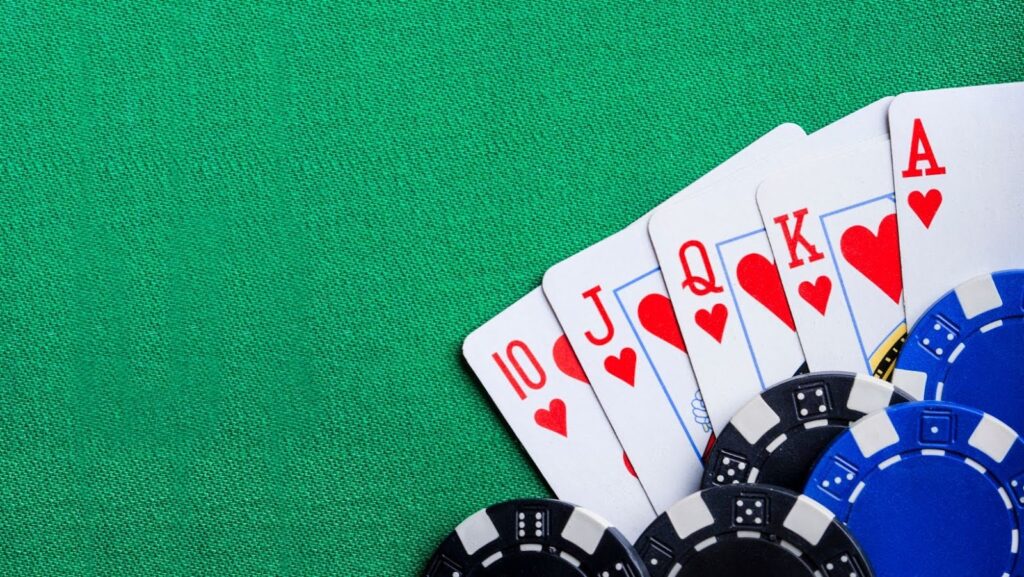In the intricate game of life and love, the strategies we employ can often mirror those used in poker. Just as a skilled poker player reads their opponents and plays their cards wisely, navigating relationships requires a keen understanding of human behavior and the ability to make strategic decisions. Whether you’re in the early stages of a relationship or looking to strengthen a long-term partnership, the lessons from the poker table can offer valuable insights. This article investigates into the parallels between poker strategies and relationship dynamics, providing you with the tools to cultivate lasting love and a fulfilling life.
The Art of Reading Your Partner: Insights from Poker Strategy
In poker, the ability to read your opponents is crucial. Players observe subtle cues, such as body language and betting patterns, to gain insights into their opponents’ hands. Similarly, in relationships, understanding your partner’s non-verbal communication can be just as important as verbal exchanges. Paying attention to facial expressions, tone of voice, and body language can reveal underlying emotions and intentions. By honing your observational skills, you can better understand your partner’s needs and desires, fostering a deeper connection.
Poker strategy also emphasizes the importance of adaptability. Just as a player adjusts their tactics based on the changing dynamics of the game, successful relationships require flexibility and the willingness to adapt to new circumstances. Life is unpredictable, and relationships are no exception. By embracing change and remaining open to new experiences, you can navigate the ups and downs of love with resilience and grace. This adaptability not only strengthens your bond but also ensures that your relationship remains vibrant and fulfilling.
Building a Strong Hand: Foundations for Lasting Relationships
In poker, building a strong hand is essential for success. Similarly, in relationships, establishing a solid foundation is key to long-term happiness. This begins with trust, the cornerstone of any healthy partnership. Trust is built through consistent actions and open communication. Just as a poker player relies on their instincts and experience to make informed decisions, couples must rely on mutual trust to navigate challenges and make joint decisions.

GGPoker, a popular online poker platform, emphasizes the importance of skill and strategy in the game. In relationships, developing skills such as effective communication, empathy, and conflict resolution can significantly enhance your partnership. By investing time and effort into honing these skills, you can create a strong, resilient relationship that can withstand the test of time. Just as a poker player refines their strategy to improve their game, couples must continually work on their relationship to ensure it remains healthy and fulfilling.
Bluffing in Love: When to Hold ‘Em and When to Fold ‘Em
Bluffing is a well-known tactic in poker, where players deceive their opponents into believing they have a stronger hand than they actually do. In relationships, bluffing can manifest as putting on a brave face or pretending everything is fine when it’s not. While there are times when maintaining a positive front can be beneficial, it’s important to recognize when it’s necessary to address underlying issues. Ignoring problems can lead to resentment and misunderstandings, ultimately weakening the relationship.
Card games strategy teaches us that timing is everything. Knowing when to hold ’em and when to fold ’em is crucial in both poker and love. In relationships, this means understanding when to stand your ground and when to compromise. It’s essential to pick your battles wisely and prioritize the issues that truly matter. By doing so, you can avoid unnecessary conflicts and focus on nurturing the aspects of your relationship that bring you joy and fulfillment.
Moreover, honesty is the best policy. While bluffing may work in poker, transparency is vital in relationships. Being open and honest with your partner fosters trust and strengthens your bond. When both partners are transparent about their feelings, needs, and expectations, it creates a safe space for vulnerability and growth. Just as a poker player must eventually reveal their hand, couples must be willing to share their true selves to build a lasting and meaningful connection.
Health and Wellness: Balancing the Odds for a Fulfilling Life
In poker, players must balance risk and reward to maximize their chances of winning. Similarly, achieving a fulfilling life requires balancing various aspects of health and wellness. Physical health, mental well-being, and emotional stability are all interconnected and contribute to overall happiness.

By prioritizing self-care and maintaining a healthy lifestyle, you can enhance your quality of life and improve your relationships.
Just as a poker player assesses the odds before making a move, individuals must evaluate their priorities and make conscious choices to achieve balance. This may involve setting boundaries, managing stress, and seeking support when needed. By taking proactive steps to maintain your health and well-being, you can create a solid foundation for a fulfilling life and thriving relationships.
The lessons from the poker table offer valuable insights into navigating the complexities of love and life. By honing your ability to read your partner, building a strong foundation, and knowing when to bluff or be honest, you can cultivate lasting relationships that bring joy and fulfillment. Additionally, by prioritizing health and wellness, you can balance the odds in your favor and create a life that is both vibrant and rewarding.
Ultimately, the key to success in both poker and relationships lies in adaptability, strategy, and a willingness to learn and grow. By embracing these principles, you can unlock the secrets to lasting love and wellness, creating a life that is rich in connection and happiness. Whether you’re a seasoned poker player or new to the game, these insights can guide you on your journey to a fulfilling and meaningful life.

